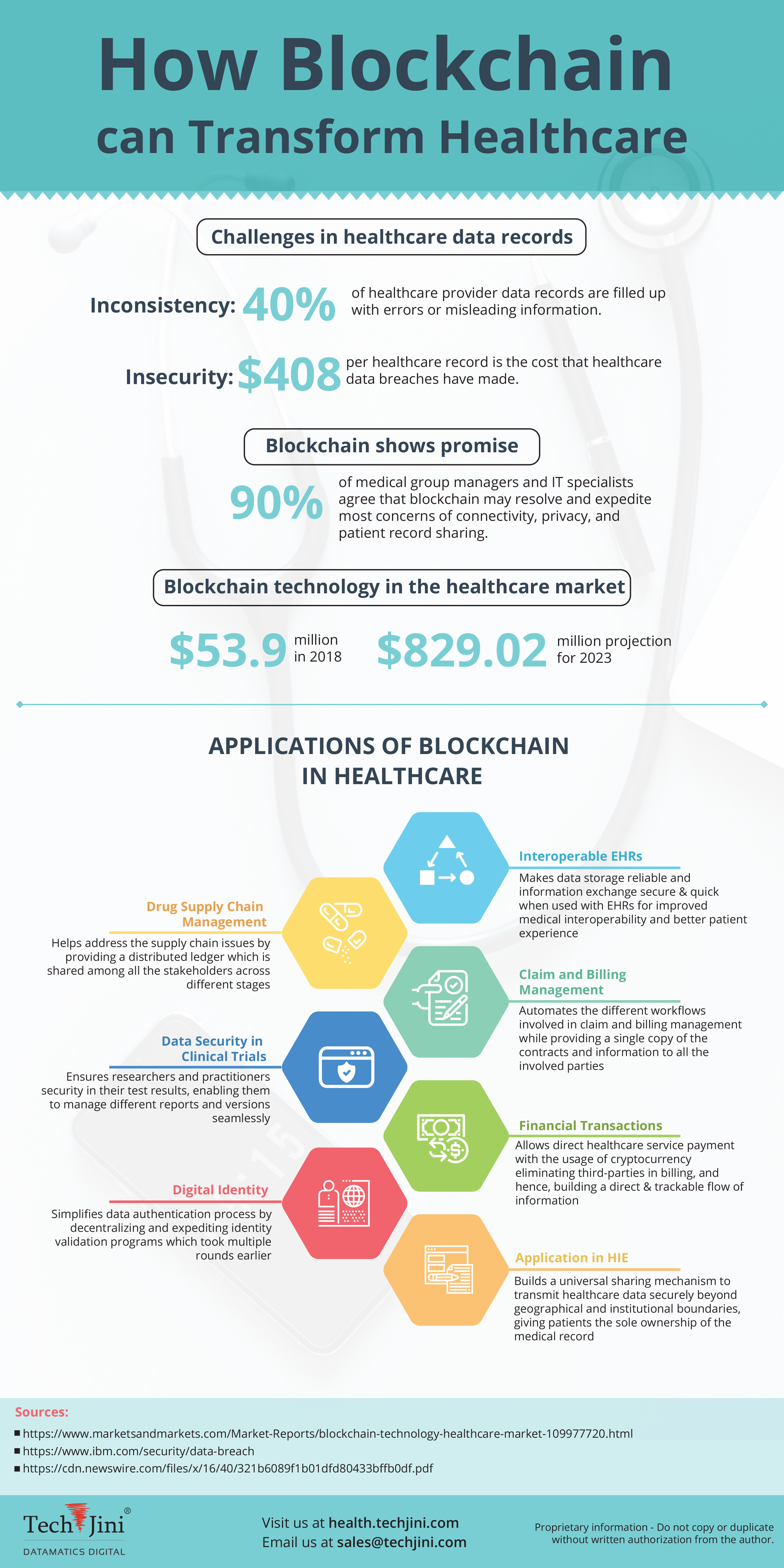Healthcare is one of the basic needs and that is why with increasing population, the number of patients is also on the rise. This leaves a grave challenge before providers – managing health data for all the patients regularly. The challenge is compounded with the modern customer expectations.
Inadequate availability or access to healthcare data is one of the serious concerns in delivering optimum care today. The absence of a unified healthcare system often leads to data inaccuracy, loss of patient identities and roadblocks in information exchange. Blockchain functions on principles such as a distributed system of recording, interoperability, and chronology. The capabilities enabled by these principles can help healthcare address some of the common issues it’s dealing with such as data sharing, lack of patient-centric treatment, slow payments, frequent claim denials, poor communication in referral process and so on. The current health information system with its complex structure is a bottleneck.
The enterprise systems are centralized rather than decentralized, as is the case with blockchain. The overhaul of culture from centralized to the decentralized nature is time-consuming and not completely cost-effective.But the nature and capabilities of blockchain technology can work towards filling the gaps of the healthcare industry. Taking a look at the immediate challenges before healthcare providers, we will map those with different blockchain capabilities to fully realize the potential of blockchain in transforming healthcare. Accessing secure patients records, eliminating counterfeited medicines, and faster clinical trials are results that healthcare can achieve with the application of blockchain.
In a 2017 survey, 93% of respondents from healthcare organizations respondents and 70% of respondents from hospitals responded that blockchain shows promise for healthcare. Healthcare providers are already turning towards blockchain as this technology has the unique capabilities to address these data challenges that plague the industry today. Application of blockchain not only enables easier access but it also ensures a smooth flow of reliable health data in a protected environment. While it allows providers and stakeholders to validate the accuracy of data, it also puts patients in control of their sensitive health information at the same time.
Top applications of blockchain in healthcare include:
- Drug Supply Chain Management
- Claim and Billing Management
- Data Security in Clinical Trials
- Interoperable EHRs
- Digital Identity
- Financial Transactions
- Application in HIE
Take a look at the infographic given below to get a glimpse of how blockchain attempts to solve potential data problems in all the facets of care operations. It clarifies how blockchain facilitates a seamless, accurate, and secure information exchange to ensure a successful healthcare model.

Final Thoughts
Blockchain could provide all kinds of fantastic benefits to the healthcare system. It’s all a matter of diving in and giving it a go.